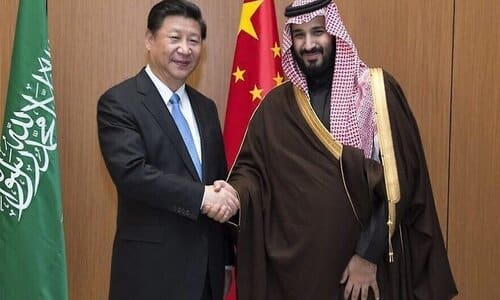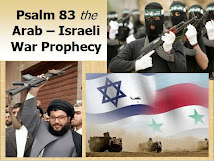
The recent normalization deals between Israel, the United Arab Emirates and Bahrain have fundamentally shifted the region's alliances. Both Gulf countries maintain close ties with Saudi Arabia, and speculation abounds as to whether or not the Saudis will be the next country to formalize ties with the Jewish state.
While Israel may be on the verge of cementing a close alliance with major Sunni Arab states in the face of a common enemy with Iran, at the same time, concern is also growing about a possible nuclear race in the region with China's help.
A recent report in The Guardian indicates that Chinese geologists say Saudi Arabia may have enough uranium ore reserves for the domestic production of nuclear fuel.
At the same time, a Wall Street Journal report said that Western officials have grown concerned about nuclear cooperation between China and Saudi Arabia in the construction of a facility for extracting uranium yellowcake from uranium ore.
This facility is being built with the assistance of two Chinese companies. Similarly, The New York Times reported that Western intelligence agencies are "scrutinizing" the Saudi's work with China to develop nuclear expertise as a cover towards the development of a nuclear weapon.
Dore Gold, president of the Jerusalem Center for Public Affairs, told JNS that the Saudi-Chinese relationship has existed for many years already. In the 1980s, Saudi Arabia reached out to China because it wanted to obtain Chinese missile technology.
"They acquired from China some of the longest-range ballistic missiles in the Middle East," he said. "So we have been there."
But Saudi nuclear capability, even if for peaceful purposes, could still place the Saudis at the threshold of nuclear military capability, which has Israel greatly concerned.
Gold said "one of the challenges for diplomacy is to try and make some of the moderation in Saudi behavior more permanent, and I don't think we've done that. As much as Saudi interests have changed, it is a reversible change. We have to make sure that it has a higher degree of permanence."
While Saudi Crown Prince Mohammed bin Salman (MBS) has demonstrated an interest in moderation by creating distance from the extremist Wahhabi ideology of many of Saudi Arabia's top clerics, it remains unclear whether or not his influence will hold.
According to Gold, Israel and Saudi Arabia "need to take the mutual threat we both face and create a basis for a quasi-alliance, but I'm not sure we are there yet. Relationships with countries you don't have diplomatic relations with are usually held very tightly in the hands of whoever is the leader. The question is how you make it permanent."




















